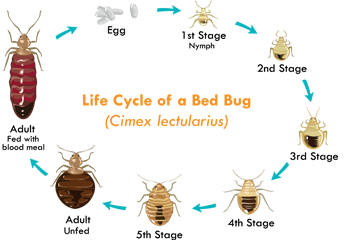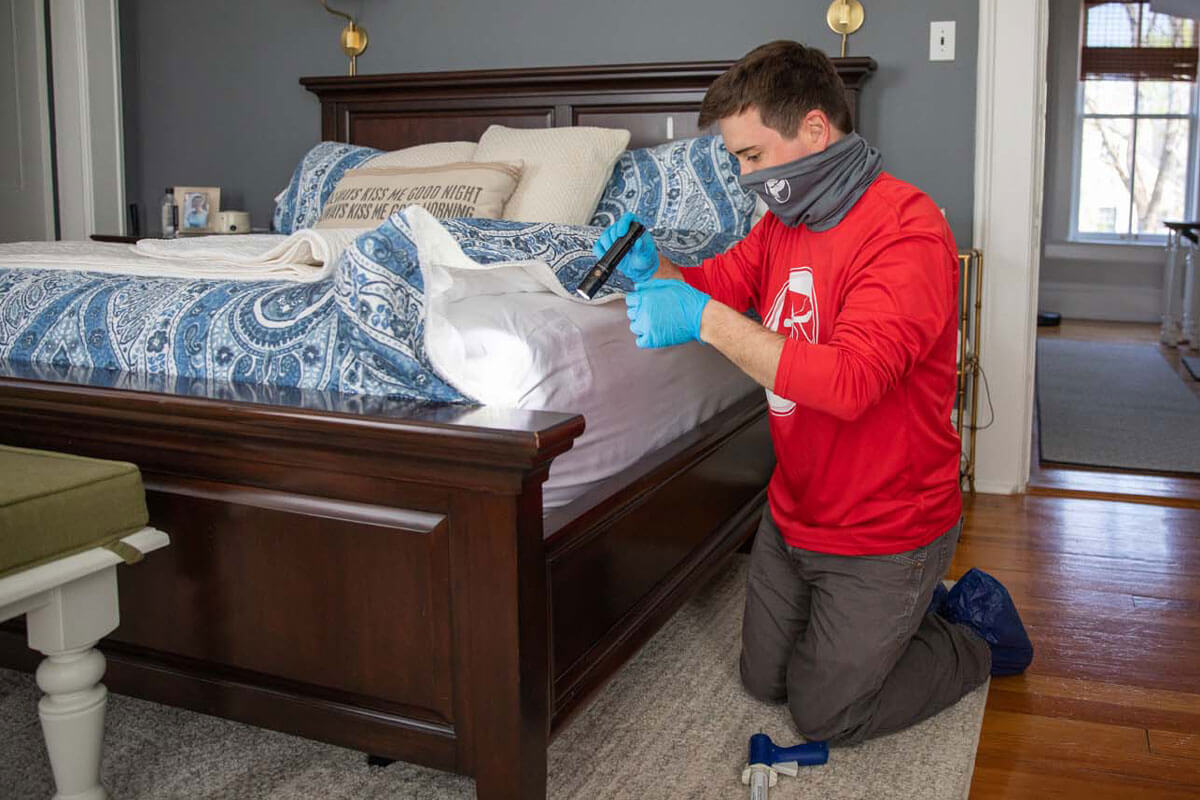Types of Pest Control: Which Method Is Right for Your Problem?
When faced with a pest invasion, the option of an appropriate technique for bug control is important in effectively handling the scenario. By exploring the different kinds of parasite control approaches readily available, individuals can make educated choices tailored to their one-of-a-kind circumstances, making sure an extra efficient and lasting end result in pest removal.
Chemical Bug Control
Chemical pest control entails the usage of synthetic or naturally acquired chemicals to take care of and eradicate pest populations successfully. This approach is commonly utilized in farming, forestry, and property setups to battle a variety of insects, consisting of rodents, insects, and weeds. The use of chemical pesticides can give quick and targeted solutions to pest infestations, making it a popular choice for numerous individuals and services.
Among the crucial benefits of chemical insect control is its capability to quickly remove bugs, minimizing the danger of damage to crops, building, and human health. By utilizing specific chemicals that target certain parasites, this technique can successfully manage infestations while reducing damage to advantageous microorganisms and the setting when used appropriately.
Nonetheless, using chemical parasite control likewise raises concerns concerning possible damaging impacts on non-target species, water resources, and human health and wellness. It is important to follow security standards, use chemicals responsibly, and consider alternate pest control methods to decrease these dangers and ensure lasting pest monitoring methods.
Biological Parasite Control
Organic pest control, likewise called biocontrol, utilizes living microorganisms to manage and minimize pest populaces naturally. This approach utilizes the power of nature to regulate insects without the demand for synthetic chemicals. Biocontrol can include the introduction of natural adversaries of the insect varieties, such as parasites, killers, or pathogens, to suppress bug populaces. By utilizing the parasite's natural predators or microorganisms, organic pest control offers a lasting and eco pleasant solution to pest management.

Mechanical Parasite Control
Using hand-operated and physical techniques to take care of bug populaces, mechanical pest control uses an alternative strategy that does not rely upon making use of living organisms or artificial chemicals. This method entails the use of obstacles, traps, or other gadgets to physically prevent or eliminate bugs. By obstructing insect access factors or establishing catches to capture them, mechanical insect control can properly decrease invasions without presenting chemicals right into the environment.
One typical instance of mechanical insect control is the usage of mesh displays on doors and home windows to avoid insects from entering buildings. This simple yet efficient approach serves as a physical obstacle, maintaining parasites out while permitting correct ventilation. Furthermore, gadgets like mousetraps, fly swatters, and ultrasonic repellents drop under the mechanical pest control category.
While mechanical pest control approaches can be labor-intensive and call for regular monitoring and maintenance, they use a lasting and eco-friendly option for taking care of pest invasions. By incorporating different mechanical techniques, homeowner can produce a detailed parasite control method that lessens dependence on chemical pesticides.
Physical Insect Control

Some usual physical insect control approaches include the usage of barriers such as internet or displays to avoid parasite entrance, traps to catch and eliminate insects, and hand-picking to literally get rid of bugs from plants or frameworks. Furthermore, strategies like warmth treatments can be made use of to control bugs like bed pests by raising the temperature level to levels that are deadly to the pests.
Physical pest control is his response especially valuable in integrated bug monitoring (IPM) strategies, where several parasite control methods are integrated for reliable pest management while lessening making use of chemicals. By utilizing physical insect control strategies, individuals can successfully address insect problems with minimal ecological effect.
Integrated Bug Administration
When applying physical pest control methods as part of insect administration methods, Integrated Parasite Management (IPM) emerges as a detailed strategy that leverages numerous strategies to properly regulate pest populaces. IPM concentrates on lasting avoidance of parasites via a mix of organic, cultural, physical, and chemical tools tailored to particular insect issues. By integrating multiple control strategies, IPM intends to minimize the risks connected with parasites while additionally reducing dependence on chemical options.
One trick facet of IPM is the focus on tracking and examining pest populations to determine one of the most appropriate control approaches. This aggressive technique permits early treatment and targeted immediate pest control methods, bring about extra effective insect management. In addition, IPM advertises ecologically friendly methods by prioritizing non-chemical control methods and just utilizing pesticides as a last resource.
Verdict

By using the insect's natural predators or pathogens, organic bug control provides a sustainable and environmentally pleasant remedy to pest administration. - Kings Bed bug exterminator Cincinnati
Using physical and hands-on methods to take care of bug populations, mechanical parasite control supplies an alternate approach that does not depend on the usage of living organisms or synthetic chemicals.An efficient approach to taking care of bug populations without counting on chemical or organic methods entails the use of physical pest control methods.When carrying out physical parasite control techniques as component of bug management approaches, Integrated Bug Management (IPM) arises as an extensive strategy that leverages different strategies to successfully control pest populaces. get redirected here Chemical pest control includes the usage of pesticides, organic insect control uses all-natural predators, mechanical parasite control involves physical obstacles, physical parasite control includes capturing or getting rid of insects, and incorporated pest administration incorporates multiple techniques for an all natural method to pest control.